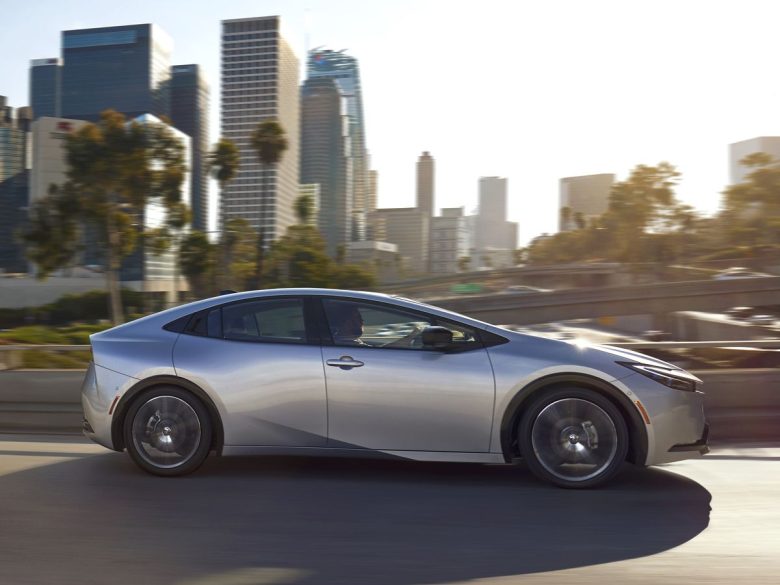When calculating the cost of a hybrid car, the first thing that comes to mind is the purchase price. Hybrid vehicles generally cost more than fuel-only vehicles because they require more complex technology to combine an electric motor and a regular engine into one system. Consider the price of the battery, one of the most expensive parts of a hybrid car. Depending on the make, model, and features of the car, the price difference can be large or small. For example, an entry-level hybrid may cost several thousand dollars more than a comparable non-hybrid model, while a luxury hybrid may see a larger price increase.
1. Save Fuel Over Time
One of the main reasons why people choose hybrid cars is that they use less gasoline. Hybrid cars use an electric motor when driving slowly or in stop-and-start traffic. This saves a lot of gasoline. Depending on the age of the car, this can save a lot of gas money. The exact amount of savings depends on factors such as gas costs, your normal driving style, and the fuel economy of your hybrid model. These savings can add up to thousands of dollars over the years, which may be enough to cover the initial higher car price.
2. Tax Deductions and Credits
Many governments offer tax breaks, rebates, or credits to people who buy hybrid cars to encourage them to buy greener vehicles. These benefits can significantly reduce the net cost of hybrid vehicles. These tax breaks can vary by country, state, or even city, and they can also vary from year to year. People considering buying a hybrid car should check out the latest offers from governments and car companies. These deals can make hybrids more affordable than regular cars.
3. How Much Does it Cost to Insure a Hybrid Car?
Insurance costs for electric vehicles can also vary. Some policies may charge more for hybrid cars because they are more expensive to repair or replace than regular cars, especially battery systems. But as a way to encourage people to be more environmentally friendly, some insurance companies are offering discounts to people who drive hybrids or other environmentally friendly cars. People looking to buy a car should get insurance quotes for both hybrid and non-hybrid types so they can get a good idea of the costs.
4. Repair and Maintenance Costs
Because a hybrid engine is more complex, maintenance costs are higher than those of a regular car. Thanks to technologies such as regenerative braking, the brakes and other components of a hybrid generally require less maintenance. However, certain parts, especially those related to the battery and electrical system, may be more expensive to repair or replace if they are damaged. Although battery packs have become more stable and last longer over time, they still represent a significant cost that can add up as replacing a battery pack often costs thousands of dollars.
5. The Value of a Used Hybrid Car
Another important economic factor is the resale value of a hybrid vehicle. Initially, hybrid cars depreciated faster than gasoline-only cars, mainly due to concerns about the life of the batteries and how much repairs would cost. On the other hand, as more people buy hybrid cars and technology continues to develop, hybrid car resale prices are starting to hold up better. Future resale values may depend significantly on changes in fuel prices, technological advances, and the availability of newer, more fuel-efficient vehicles. This can make older hybrids less attractive.
6. Total Cost of Ownership Analysis
People looking to buy a hybrid need to consider more than just the price tag. They need to consider how much this will cost them in the long run. Find out how much you can save on gas, any tax deductions you may receive, higher insurance rates, and potential repair and maintenance costs. It is also important to know how quickly the car is expected to depreciate. The calculations show that for many buyers, despite the higher upfront cost of a hybrid, the total cost of ownership in a few years is likely to be lower than that of a regular petrol car.
Conclusion
All in all, hybrid cars generally cost more upfront than non-hybrid cars, but they can save you a lot in the long run due to lower fuel costs, government rebates, and possibly even lower maintenance costs for some parts funds. Anyone considering buying a hybrid should consider all of these factors to see if a hybrid makes financial sense for their situation and driving style. As technology continues to improve and more people buy hybrids, there may be greater financial benefits to becoming a hybrid owner.
FAQs
1. Are electric cars economical?
Yes, hybrid cars can save you a lot on gasoline because they have both an electric motor and a gasoline engine, making them more economical. How much you save on gasoline depends on how you drive, the fuel economy of your hybrid model, and the cost of gasoline.
2. Are there tax benefits associated with purchasing a hybrid car?
To encourage people to buy hybrid cars, many countries and regions offer tax breaks, rebates, or credits. These benefits can make buying a hybrid cheaper but are not the same in every region and can change from year to year. When people are ready to buy, they need to know what incentives are available in their area.
3. Will insurance costs for electric vehicles be higher?
Because hybrid cars cost more to repair or replace parts with more advanced technology, their insurance rates can be slightly higher than comparable regular cars. On the other hand, some insurance companies offer discounts for hybrid cars because the average hybrid driver is considered less dangerous.
4. What is the difference between the maintenance price of hybrid cars and regular cars?
Because hybrid vehicles have more complex systems, maintenance costs can be higher in some areas, especially when it comes to batteries or electrical components. However because regenerative braking systems reduce wear, brake system maintenance costs are also likely to be lower.
5. Can hybrid cars be sold at a good price?
Initially, hybrids weren’t worth as much as regular cars, mainly due to concerns about how long the batteries would last and how much repairs would cost. But as technology advances and more people buy hybrids, their resale value increases. The resale value will depend on changes in technology and market trends.
6. How much does a new battery for a hybrid car cost? What is the lifespan of an old battery?
Most hybrid car batteries last as long as the car itself, ranging from 8 to 15 years depending on the car and how it is used. Replacement costs can be expensive, reaching thousands of dollars in some cases. However, as technology has advanced, prices have fallen.



